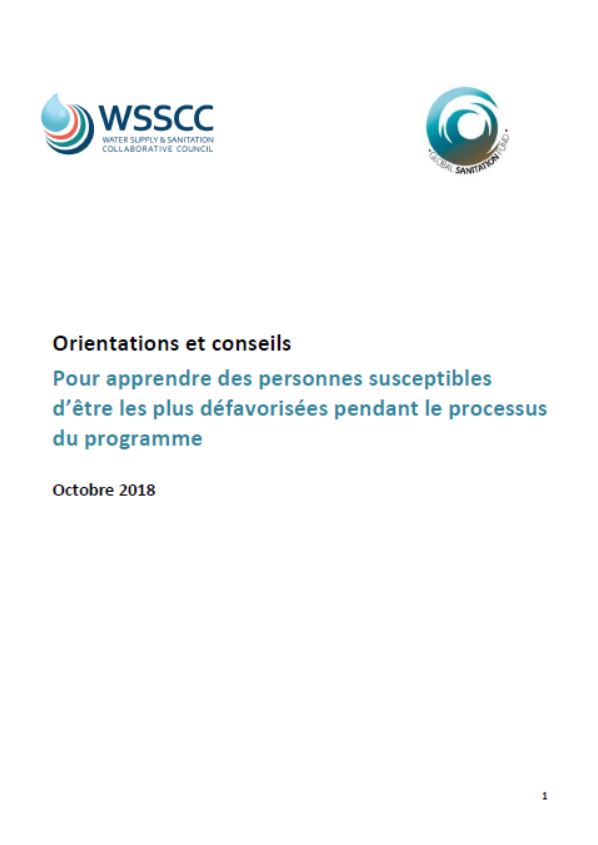Orientations et conseils pour apprendre des personnes susceptibles d'ętre les plus défavorisées pendant le processus du programme
 |
Guidance and tips for learning from people who may be most disadvantaged during the programme process
informe Oct 2018 ; 68 páginas
Aut. Sarah House
Ed. WSSCC - Genčve
Formato descargable: PdF
Descargable desde el editor
Un editor presentación
Abstract:
A practical guide for the Global Sanitation Fund (GSF) supported programme teams and Community Led Total Sanitation (CLTS) facilitators on how to collect information related to Equality and Non-Discrimination (EQND) at community level, and in particular to learn from people who may be disadvantaged. This guide provides insights into the key ethics principles for information gathering and documentation, offers practical qualitative learning and participatory tools, showcases good practice tips for qualitative learning, and includes qualitative information gathering tools, participatory exercises, as well as focus group discussion and interview guides.
Palabras claves: |
agua de bibeda (CI) (DT) (HP) (ope) , discapacidad (CI) (DT) (HP) (ope) , género (CI) (DT) (HP) (ope) , pobreza (CI) (DT) (HP) (ope) , saneamiento (CI) (DT) (HP) (ope) , SANTOLIC liderado por la comunidad de Saneamiento Total (CI) (DT) (HP) (ope) |
Editor/Difusor: |
|
WSSCC
-
Water Supply and Sanitation Collaborative Council - Genčve - Suiza |
Si hay un enlace roto, estaremos encantados de recibir un mensaje: communication@pseau.org